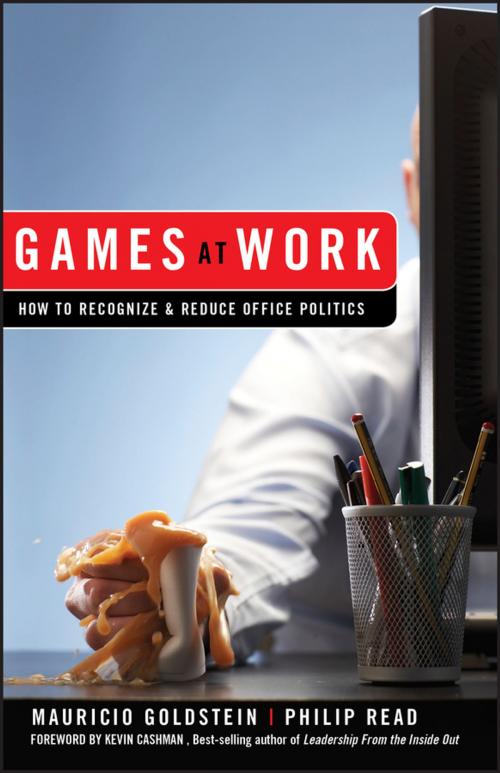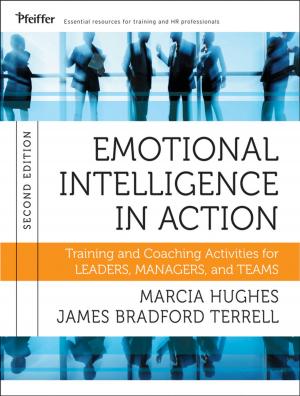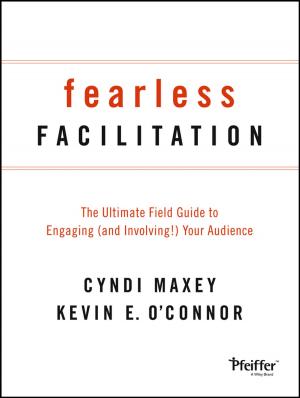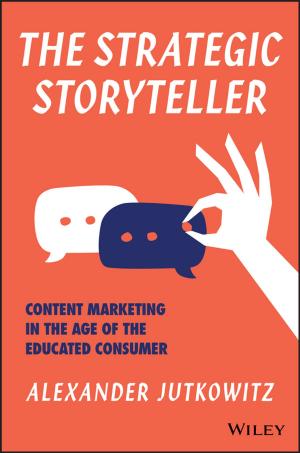| Author: | Mauricio Goldstein, Phil Read | ISBN: | 9780470458839 |
| Publisher: | Wiley | Publication: | March 30, 2009 |
| Imprint: | Jossey-Bass | Language: | English |
| Author: | Mauricio Goldstein, Phil Read |
| ISBN: | 9780470458839 |
| Publisher: | Wiley |
| Publication: | March 30, 2009 |
| Imprint: | Jossey-Bass |
| Language: | English |
AS LONG AS PEOPLE HAVE WORKED together, they have engaged in political games. Motivated by short-term gains—promotions, funding for a project, budget increases, status with the boss—people misuse their time and energy. Today, when many organizations are fighting for their lives and scarce resources there is increased stress and anxiety, and employees are engaging in games more intensely than ever before.
Organizational experts Mauricio Goldstein and Philip Read argue that office games—those manipulative behaviors that distract employees from achieving their mission—are both conscious and unconscious. They can and should be effectively minimized. In Games at Work, the authors offer tools to diagnose the most common games that people play and outline a three-step process to effectively deal with them. Some of the games they explore include:
- GOTCHA: identifying and communicating others' mistakes in an effort to win points from higher-ups
- GOSSIP: engaging in the classic rumor mill to gain political advantage
- SANDBAGGING: purposely low-balling sales forecasts as a negotiating ploy
- GRAY ZONE: deliberately fostering ambiguity or lack of clarity about who should do what to avoid accountability
Filled with real-world, entertaining examples of games in action, Games at Work is an invaluable resource for managers and all professionals who want to substitute straight talk for games in their organizations and boost productivity, commitment, innovation, and—ultimately—the bottom line.
AS LONG AS PEOPLE HAVE WORKED together, they have engaged in political games. Motivated by short-term gains—promotions, funding for a project, budget increases, status with the boss—people misuse their time and energy. Today, when many organizations are fighting for their lives and scarce resources there is increased stress and anxiety, and employees are engaging in games more intensely than ever before.
Organizational experts Mauricio Goldstein and Philip Read argue that office games—those manipulative behaviors that distract employees from achieving their mission—are both conscious and unconscious. They can and should be effectively minimized. In Games at Work, the authors offer tools to diagnose the most common games that people play and outline a three-step process to effectively deal with them. Some of the games they explore include:
- GOTCHA: identifying and communicating others' mistakes in an effort to win points from higher-ups
- GOSSIP: engaging in the classic rumor mill to gain political advantage
- SANDBAGGING: purposely low-balling sales forecasts as a negotiating ploy
- GRAY ZONE: deliberately fostering ambiguity or lack of clarity about who should do what to avoid accountability
Filled with real-world, entertaining examples of games in action, Games at Work is an invaluable resource for managers and all professionals who want to substitute straight talk for games in their organizations and boost productivity, commitment, innovation, and—ultimately—the bottom line.















